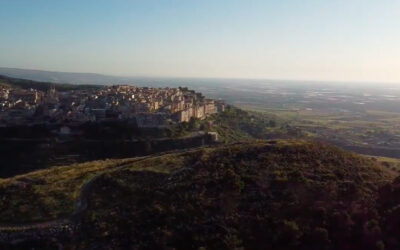Arthur George Baum left for heaven on February 4th 2021 at the age of 92, in Augsburg, Germany. He was born on May 18th 1928 in Hinckley, a town in the county of Leicestershire, in the heart of England. Single, a Volunteer of God and a member of the International Volunteers of the Focolare, he worked for many years at Vatican Radio, people there have beautiful memories of him. In the last month of his earthly life, he was in a nursing home as he underwent surgery on his femur, fractured after a fall. He was one of the first Volunteers of God and formed the first nucleus at the International Volunteer Centre. He was renowned for his humour, which was obviously English, but he was also very tidy, one might say German, and as precise as someone Swiss, but above all he managed to overcome obstacles with Italian genius. Hèctor Lorenzo (God’s Volunteer and Arthur’s friend) tells us that, even in tragic physical situations Arthur could add humour. One evening after 11 p.m., he received a phone call: ‘It’s Arthur, I have a haemorrhage in my leg’. Hector, with his wife and son, rushed to Arthur’s flat and, after initial assistance, immediately called an ambulance. Before getting into the ambulance, Arthur uncovered his mouth from the blankets that had sheltered him from the cold and confided to Hèctor: “You know, I’m missing something”. Hector asks him what? And he said: “My hat!”. For the last ten years he was happily settled in Germany. Those who know Arthur know that he loved the strong winds of Ireland and the north of England, was moved by a flower, sang Tyrolean songs and some Elvis Presley themes. He rejoiced in the silence of Gothic churches or Gregorian chant, appreciated warm wine in winter and made a small amount of the drink ‘mead’ which he could not help but share with his friends. He also shared hot goulash and some oriental cuisine. He was very demanding in building a strong unity in the nucleus of Volunteers: he always started by loving everyone first in order to generate mutual love, always finding an intimate dialogue of mercy. Hèctor recounts: “Having been a companion in the same nucleus at the Volunteers’ Centre and living with my family next door to Arthur’s flat, we were enriched by his unique personality and evangelical witness. Our son, Julián, says: “Arthur is his name, but you could call him Humility, Generosity, Welcoming”. Arthur was a man of distinction, of essential words, of intimate religiosity. He knew how to move from serious reflections to healthy irony; to distinguish constructive attitudes from useless or harmful ones. His eloquent smile will always express gratitude.
Lorenzo Russo




0 Comments